Understanding the Effectiveness of KN95 Masks
Introduction
Wondering how effective are KN95 masks? You're not alone. With the ongoing pandemic and the potential for future health crises, the importance of trustworthy and proficient face protection has come to the forefront. For health-conscious individuals like us, understanding the effectiveness of the masks we wear is crucial.
We all want to protect our loved ones and ourselves, especially those who may be more susceptible to airborne diseases such as seniors or people with existing health conditions. Amidst a market flooded with different mask types — from cloth to surgical masks — KN95 masks have emerged as a trusted option, and for a valid reason.
Here, at Hope Health Supply, we're dedicated to giving you the best. We've been helping families shield themselves from health threats with our high-quality KN95 masks. But these aren't just empty claims. The science is here to back it up.
In essence, a KN95 mask effectively provides at least a 95% filtration efficiency against airborne particles down to 3 microns, including viruses like COVID-19. Wearing a KN95 mask properly can significantly lower your risk of infection, offering a considerably higher level of protection than a cloth or surgical mask.

For a quick overview, here are some crucial points about the effectiveness of KN95 masks:
- They are designed to filter out at least 95% of particles down to 3 microns.
- Provided that they maintain their form without visible damage or soil, KN95 masks can be reused, with a different one being used each day for up to 72 hours.
- KN95 masks offer protection not only against viruses but also dust, mold, and other airborne particles.
We'll delve deeper into what defines a KN95 mask, how it compares to other kinds of face masks, and tips to maximize its effectiveness. Let's explore the science behind our masks and counteract the tide of misinformation. For the best defense is a good understanding.
What are KN95 Masks?
KN95 masks originated in China and are similar in design to the N95 respirators commonly used in the United States. The "KN" in KN95 stands for the Chinese standard for respiratory masks, while the "95" refers to their efficiency in filtering airborne particles.
Origin and Purpose of KN95 Masks
KN95 masks were developed to protect healthcare workers and the general public from airborne particles such as dust, allergens, and infectious agents like viruses. They are commonly used in high-risk settings such as hospitals and clinics. However, with the onset of the COVID-19 pandemic, the use of KN95 masks has become more widespread, extending to everyday scenarios like grocery shopping or using public transportation.
In our online store at Hope Health Supply, we offer FDA-approved KN95 masks designed to provide excellent filtration efficiency and a comfortable fit for long-term wear.
How KN95 Masks Work
KN95 masks work by filtering out at least 95% of airborne particles that are 0.3 microns or larger. They achieve this through a multi-layer design typically consisting of four to five layers of high-quality, non-woven fabric. These layers work together to provide both physical and electrostatic barriers, capturing larger particles like dust and pollen, and smaller ones, including bacteria and viruses.
The outer layer of the mask repels water, blood, and other bodily fluids, protecting the wearer from potential infection. The innermost layer, which is in direct contact with the wearer's face, absorbs moisture from exhaled breath, making the mask comfortable to wear for extended periods. The middle layers are made of melt-blown fabric, which acts as a filter, trapping smaller particles that have managed to pass through the outer layer.
To ensure these masks work as intended, a proper fit is crucial. KN95 masks typically come with ear loops and a metal nose clip to provide a secure seal around the face. The fit should be snug but comfortable, with no gaps where unfiltered air could enter or exit.
In conclusion, understanding how effective are KN95 masks revolves around their design, the quality of materials used, and the correct usage. When used correctly, these masks can provide a significant level of protection against airborne particles, including those that cause COVID-19. For more information on our range of KN95 masks, visit our KN95 collection page on Hope Health Supply.
Comparing KN95 Masks to Other Masks
Understanding how effective are KN95 masks can be better appreciated when we compare them with other types of masks. Let’s delve into a comparison of KN95 masks with N95 masks, surgical masks, and cloth masks.
KN95 vs N95 Masks
Though often compared, KN95 and N95 masks have key differences, primarily in their origin and fit. N95 masks are standard in the United States, while KN95 masks are the equivalent standard in China. Both types of masks are designed to filter out at least 95% of particles down to 3 microns, including dust, mold, and certain viruses.
However, N95 masks generally offer a tighter fit due to their design that includes head straps, as opposed to the ear loops found on KN95 masks. This tighter fit can make N95 masks more effective in preventing the leakage of unfiltered air. Despite this difference, both masks provide a high level of protection when used correctly.
KN95 vs Surgical Masks
Surgical masks are loose-fitting and primarily protect others from the wearer's respiratory emissions. They are not designed to protect the wearer from inhaling airborne bacteria or viruses. While they do reduce the exposure to large particles, they do not filter smaller particles effectively.
On the other hand, KN95 masks are designed to protect the wearer by filtering out at least 95% of particles down to 3 microns. This includes protecting the wearer from inhaling airborne viruses and bacteria. Importantly, the leakage of unfiltered air around a KN95 mask is lower than with a surgical mask, making KN95s a better choice for personal protection.
KN95 vs Cloth Masks
Cloth masks are the least effective when compared to KN95 and surgical masks. While they can provide some level of protection and are better than wearing no mask at all, they are not designed to filter out small particles effectively.
KN95 masks, with their ability to filter out at least 95% of particles down to 3 microns, provide a much higher level of protection than cloth masks. They also fit more snugly against the face, reducing the likelihood of unfiltered air leakage.
In conclusion, while all masks provide some degree of protection, KN95 masks offer significant protection against airborne particles, including viruses. The key to mask effectiveness is proper fit and usage. For more information on how to properly wear and care for your KN95 mask, visit our KN95 mask usage guide on Hope Health Supply.
The Effectiveness of KN95 Masks
In the fight against airborne pathogens, understanding how effective are KN95 masks is crucial. These masks are designed to filter out small particles and provide a high level of protection.
Filtration Capacity of KN95 Masks
Firstly, let's talk about the filtration capacity of these masks. Both KN95 and N95 masks are rated to filter out at least 95% of particles down to 3 microns. This includes harmful microscopic entities like bacteria, dust, and mold. However, the filtration capability of a mask alone is not enough. A proper fit is crucial for ensuring maximum protection. The N95 is slightly more effective due to its ability to achieve a better fit. However, even with ear loops, the KN95 masks are capable of providing a good seal, minimizing air leakage.
Protection Against COVID-19
The COVID-19 virus is primarily transmitted through respiratory droplets, and masks serve as a barrier to block these droplets. Studies, like those cited by the CDC, have suggested that wearing masks, including KN95 masks, can significantly reduce the transmission of SARS-CoV-2, the virus that causes COVID-19.
According to the AMA, N95 and KN95 masks can reduce the wearer's risk of catching SARS-CoV-2 by 83%, making them highly effective tools in preventing COVID-19.
Protection Against Other Airborne Particles
Apart from viruses, KN95 masks also offer protection from a variety of other airborne particles. The N95 mask, for instance, is designed to filter out at least 95% of the dust and mold in the air. This makes KN95 masks an excellent option for those working in dusty environments or for people who are sensitive to airborne allergens.
In conclusion, KN95 masks, available at Hope Health Supply, provide a high level of protection against airborne particles, including viruses like COVID-19, when used correctly. Their filtration capacity coupled with proper fit and usage make them a reliable choice for those seeking an effective layer of defense against airborne threats.
Proper Usage and Care of KN95 Masks
To maximize the effectiveness of KN95 masks, it's crucial to understand how to wear, care, and reuse them correctly.
How to Wear a KN95 Mask Correctly
When it comes to wearing a KN95 mask, the key is to ensure a snug fit around the face. The mask should cover your nose, mouth, and chin entirely, with no gaps. The effectiveness of any mask is significantly reduced if it doesn't fit properly.
Here are some steps to follow:
- Wash or sanitize your hands before handling the mask.
- Hold the mask by its ear loops and place it over your face.
- Make sure the mask covers your nose, mouth, and chin without any gaps.
- Adjust the bendable nose strip to prevent air leakage from the top of the mask.
- Don't touch your mask while wearing it. If you need to adjust it, wash or sanitize your hands before and after.
Just as it's crucial to wear your mask correctly, it's also essential to take it off in a safe manner. When removing your mask, touch only the ear loops, and avoid touching the front of the mask, which could be contaminated.

How Often Can You Safely Wear a KN95 Mask
At Hope Health Supply, we recommend using a different KN95 mask every day and not wearing the same mask more than once every 72 hours. If following this rotation, KN95 masks may be reused as long as they do not become wet, visibly soiled, or deformed, causing them to not fit well anymore.
How to Store and Reuse KN95 Masks
Proper storage of KN95 masks is crucial to maintain their effectiveness. After wearing a mask, it should be stored in a breathable bag, such as a paper bag, and clearly labeled to avoid accidental use by someone else. Masks should not be shared even between family members.
If you plan to reuse your KN95 mask, ensure it's not visibly soiled or wet, and it maintains its shape. If a mask has been dirtied or damaged, it should be discarded and replaced.
In conclusion, understanding how to wear, care for, and reuse your KN95 masks is integral to their effectiveness. At Hope Health Supply, we provide top-quality KN95 masks, and we are dedicated to educating our customers on their proper usage. By following these guidelines, you can enhance your protection and play your part in safeguarding public health.
Tips for Maximizing the Effectiveness of KN95 Masks
Now that you know how effective are KN95 masks and how to use them correctly, let's look at some tips to further enhance their efficiency.
Ensuring a Good Fit
One of the most important factors in maximizing the effectiveness of a KN95 mask is ensuring a good fit. The mask should cover your mouth, nose, and chin without any gaps. A poorly fitting mask can allow unfiltered air to enter and exit around the edges, reducing its overall effectiveness.
As per the AMA, N95 and KN95 masks can be fitted to your face for a better seal. If you wear glasses, a better seal can also help prevent your glasses from fogging up. If the mask causes irritation, it may not be fitted properly.
Double-Masking
Some people choose to wear a medical mask under a cloth mask for added filtration. The cloth mask can press the edges of the medical mask against the face, enhancing the fit and sealing potential gaps. However, it's crucial not to use another mask with a KN95 or N95 mask, according to the Mayo Clinic.
Facial Hair and Mask Effectiveness
Facial hair can interfere with the seal of a mask, reducing its effectiveness. The CDC recommends that individuals with facial hair consider shaving or trimming their facial hair to ensure a tight seal when wearing a mask.
The proper use of KN95 masks can significantly increase their effectiveness. As we at Hope Health Supply always say, wearing a mask correctly is not just for your safety, but also for the wellbeing of those around you.
Conclusion
Understanding 'how effective are KN95 masks' is crucial, especially in the midst of a global pandemic. Their high filtration capacity and ability to provide substantial protection against COVID-19 and other airborne particles make them a top choice for health-conscious individuals. The key to maximizing their effectiveness, as we've discussed, is proper usage, storage, and care.
KN95 masks, when used correctly, are rated to filter out at least 95% of particles down to 3 microns. This includes protection against dust, mold, and most importantly, virus-sized particles. In comparison to other types of masks, KN95 masks offer a higher level of protection, second only to N95 masks, which are most commonly used by frontline healthcare workers.
However, it's important to remember that while KN95 masks provide substantial protection, they are not a standalone solution. They should be used in conjunction with other preventive measures such as hand hygiene, social distancing, and vaccination. And as always, ensuring a good fit and proper usage of your mask is crucial to maximize its effectiveness.
At Hope Health Supply, we believe in providing quality health supplies that can help protect you and your loved ones. Our KN95 masks are reliable, effective, and meet all necessary standards. But we also understand that everyone has unique needs, which is why we offer a variety of other face masks and protective products to suit different preferences and requirements.
In conclusion, KN95 masks are an effective tool in our battle against COVID-19 and other airborne health threats. By understanding their proper usage and care, we can maximize their effectiveness and ensure our safety, as well as the safety of those around us.
For further reading, please visit our blog where we cover a variety of health-related topics, including detailed discussions about masks and other protective measures. You may also find our FAQ section useful for any further questions you may have about our products.
Stay safe, and remember: your health is our priority.




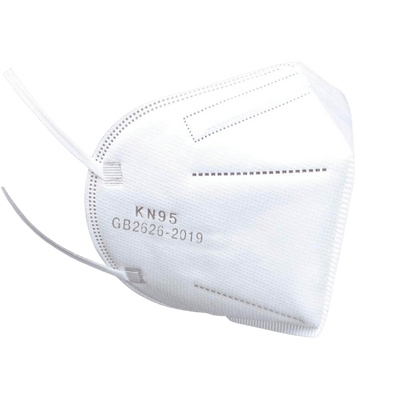
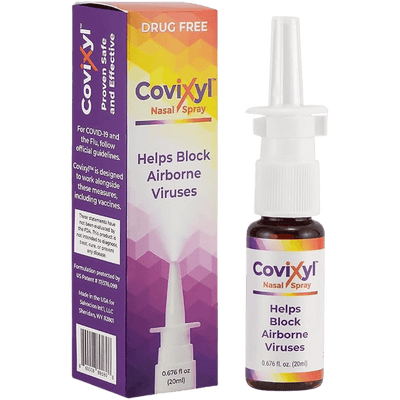
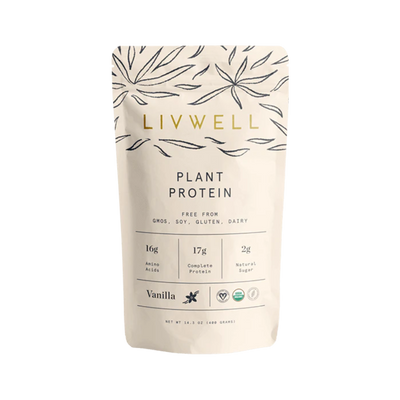
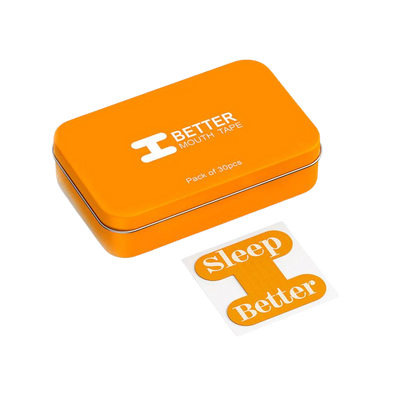

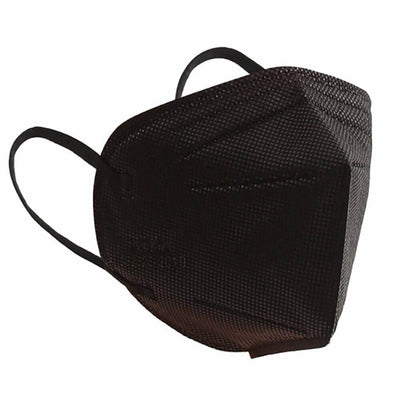


Leave a comment